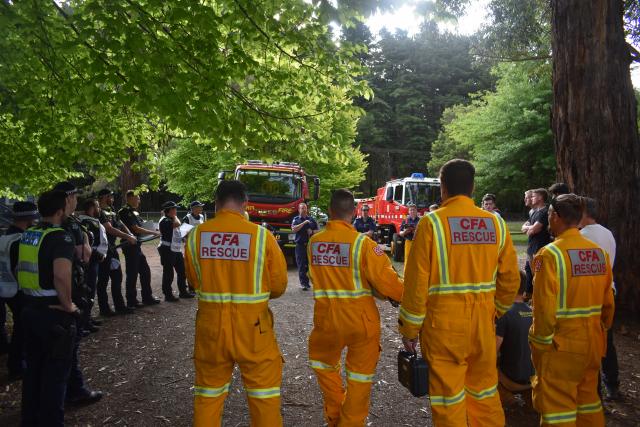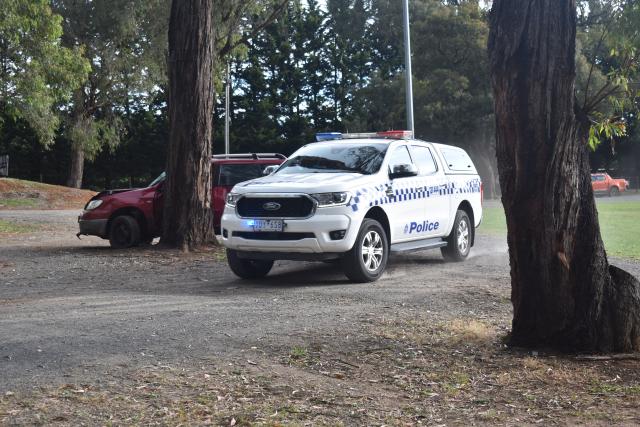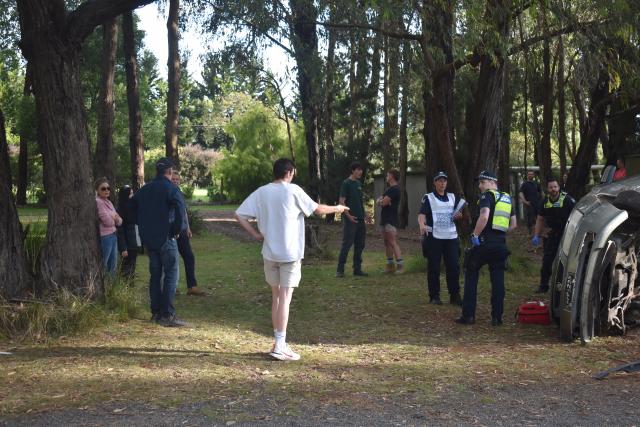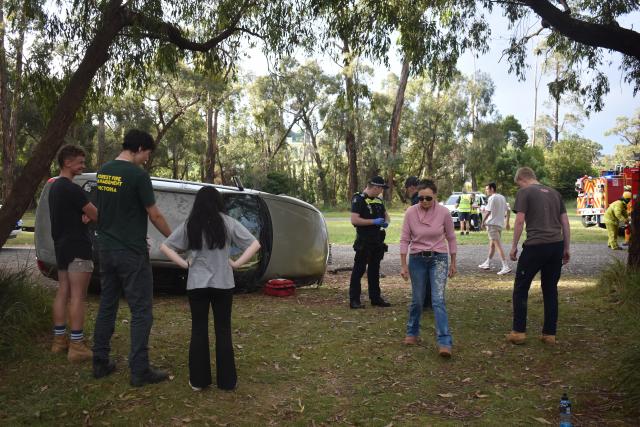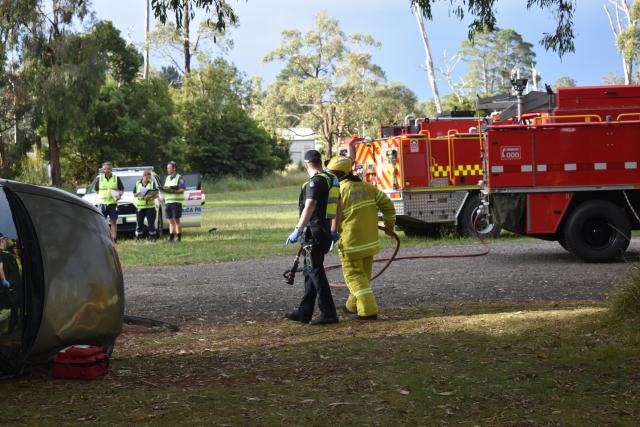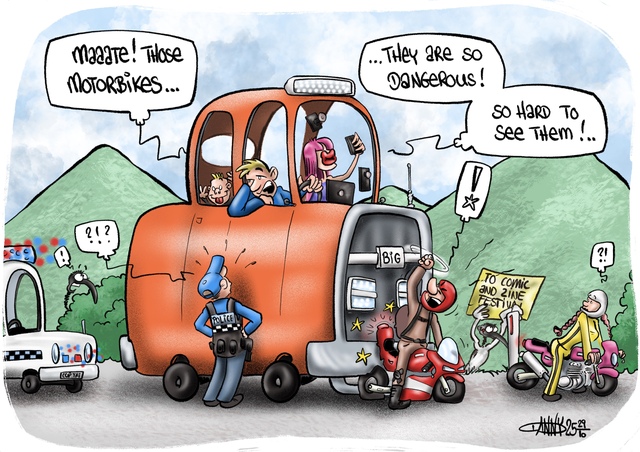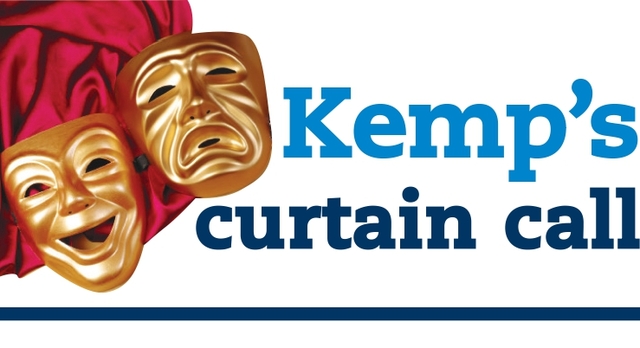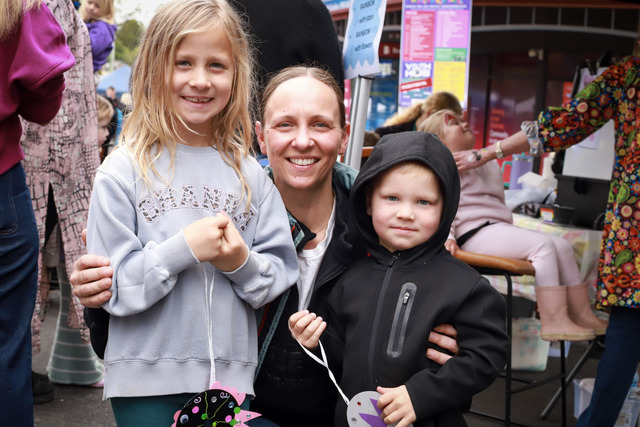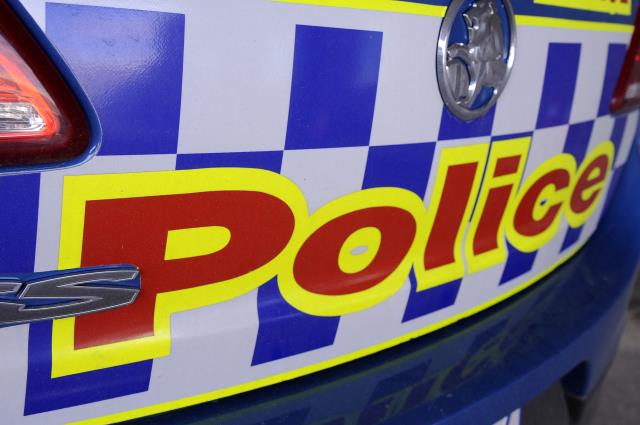Local emergency services joined together to train a crucial cog in their critical response efforts on Tuesday 28 November.
Ensuring clear communication was the key focus of CFA, Victoria Police and Ambulance Victoria (AV) personnel in a road-rescue training session held at the Wandin East Recreation Reserve.
Captain of the Wandin Fire Brigade, which has a specialist road rescue team, Darryn Goss said that given the amount of jobs that the agencies do together, the session was brought about to make sure that they could work together, understand each other’s needs and requirements and to positively impact the community when they’re in their time of need.
“This is hopefully going to be the first of many interagency exercises that we undertake, we’re always getting new responders in the area and you don’t see motor vehicle accidents or road crash rescue every day so it’s a unique skill set and a unique outcome,” he said.
“Being exposed to the hustle and bustle and the noise that happens at an incident, it helps you understand what you need to do to have better outcomes.”
Multiple scenarios were set up throughout the reserve including a car rollover and a collision with a tree, with Wandin Fire Brigade members and friends also playing the part of patients or disruptive onlookers.
Clinical Support Officer at Ambulance Victoria Peter Godwin from their side of things, they need their guys to understand that the brigade and police are in charge of the rescue and the scene.
“They need to know who is in charge of each individual unit so that they can then liaise with them when required about what we need versus what is actually able to happen at the time,” he said.
“Without that communication, you can end up with a bit of a dog’s breakfast where people want things done but don’t speak to the right people from the right service to ascertain who actually can do it or if it is achievable.”
Planning between the agencies to bring the session together had been ongoing for about a year and there’s hope to continue the practice annually.
Senior Sergeant at Lilydale Police Station Mark Knight said they tell their people to take away something from the night that resonates with them.
“Even if it’s just one thing they’ve learnt, when we go into the line of fire, that’s where it’ll come out and they’ll know they can bring that to the table,” he said.
Acting Senior Sergeant Jo Konomas said there’s a lot of experience within each agency and even more when you get into discussions at the scene so it’s important to hear everyone’s viewpoints.
“It’s about drawing on that experience from everyone else and being prepared to challenge each other as an agency and put our heads together to come up with the best result,” she said.
Arriving to a road crash rescue incident is challenging even for the most well-prepared emergency services personnel and there are a number of ways witnesses or those involved in the accident can make the process as easy as possible.
If you witness an accident, make yourself and/or your vehicle safe and call Triple Zero immediately (000). Remain near the scene and if you can but safely away from the crash as you may be required to make a statement to police. Do not attempt to remonstrate with or interrupt emergency services on the scene, but you can speak to police if they approach you or ask to take a statement.
If you cannot remain near the scene, provide your details to police if appropriate or make a statement at your local police station or via the Police Assistance line on 131 444 as soon as you can.
If you are in an accident, check yourself for any serious injuries and for hazards in the vehicle before trying to leave it to assist any other persons involved and call triple Zero (000) if someone hasn’t already.
Drivers involved in an accident are legally required to exchange details with any other driver or the owner of any property that is damaged before leaving the scene, whether somebody is hurt or not.
If police attend, they will usually test drivers involved for alcohol or other drugs and it is a serious offence to refuse this test.
If possible, write down everything you can remember about the incident, including the time, date and location where the accident happened, names and contact details of any witnesses, an estimation of the speed you were travelling at and weather conditions.
Wandin Fire Brigade 4th Lieutenant and Rescue Controller Phillip Smith said road rescue a true team response from all agencies and everyone has a role to play.
“From our point of view, it’s pretty clear on fires or community safety incidents or medical incidents who’s in charge but a crash can involve everything from rescue to fire suppression, patient care, traffic management and potentially criminal investigation,” he said.
“Running scenarios like this are really key to not only practice the practicalities of going through a scene and the scenarios that we’re going to do, but also in just getting to know the faces of these guys and girls that have come out to play tonight and will be the ones we see on the scene.”

